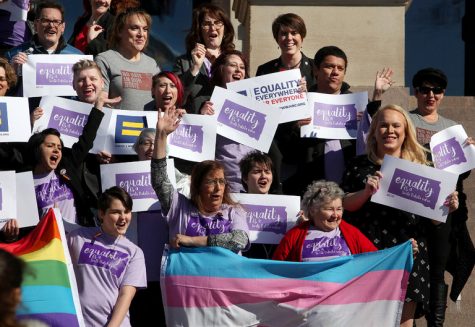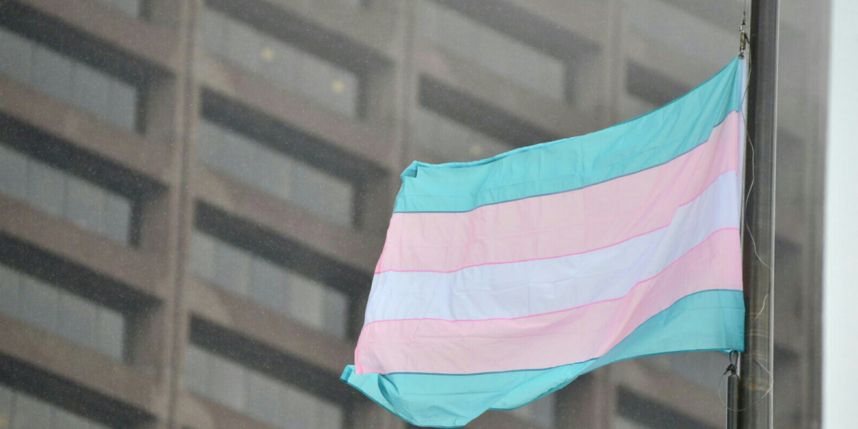Transparent Discrimination
Photo courtesy of Derek Kouyoumjian
A flag symbolizing the transgender community is raised at Boston City Hall Plaza.
Throughout history, the American people have never exhibited tolerance and acceptance of foreign or different viewpoints on life. Joseph Lobdell, born Lucy Ann Lobdell, was among America’s first transgender men. “He and his wife were constantly on the run,” and he was constantly “threatened with being tarred and feathered” (The Washington Post). He was referred to as a “freak.” Eventually, he was involuntarily committed at the Willard Hospital for the Insane, where his doctor “would write in a medical journal in 1883 that he was insane,” a case of “sexual perversion,” a “rare form of mental disease” (The Washington Post).
It is true that members of the LGBT+ community were treated more harshly in the past. However, they still face different forms of discrimination today. A prime example of this is the House Bill 2 of North Carolina, also known as the Public Facilities Privacy & Security Act. This “bans individuals from using public bathrooms that do not correspond to their biological sex” (CNN). Basically the governor of North Carolina, Pat McCrory, signed the bill that restricts the rights of transgender people.
This is an extreme hinderance to the LGBT+ movement because it denies trans people the right to identify with their gender. Many conservatives argue that it is safer for cisgender people if transgender people use the “correct” restroom. They’re saying that trans women in the women’s restroom can be “sexual predators” because of the “access to potential victims” (National Public Radio). In reality, the “truth is that there are zero reported incidents of transgender people harassing non-transgender people in a restroom” (The Daily Beast).
Jody Herman, a public policy scholar at UCLA School of Law’s Williams Institute, conducted a survey of 93 transgender people
about their experiences in restrooms. “About 70 percent of the sample reported experiencing being denied access to restrooms, being harassed while using restrooms and even experiencing some forms of physical assault,” say Herman. “Eight of the 93 respondents in her survey said they had been physically attacked in a restroom” (National Public Radio).
Because of this bill, resentment towards transgender people is heightened, which puts them in danger. About 1.4 million adults in the United States identify as transgender, which means 1.4 million people face discrimination everyday (New York Times). Sadly, 2016 has already seen at least 19 victims of transgender hate crimes (Human Rights Campaign).

Members of the LGBT+ community rally on the steps of the State Capitol in Pierre, S.D., for Trans Kids Support Visibility Day in February.
Kai Trinh (9) believes strongly that everyone deserves equal rights. “Being born, looking how you want, and feeling how you want is a wonderful thing,” he says. “To be comfortable in your own skin, you have to fight social norms to get what you want; this means we have to be strong and fight for our civil right to be recognized by the gender we identify as.”
Kai is right; everyone deserve to be treated equally. Transgender people should never feel scared, or that they don’t belong in society. Unfortunately, not everyone shares this point of view. Due to the severe ignorance still prevalent in American society, trans people are not treated as equals; even the government denies them basic civil rights.
Because of America’s refusal to accept anything out of the norm, social change cannot be achieved. Yet if this society is willing to educate themselves and open up their minds to accept different ideas, America just might have a shot at achieving equality and uniting the people of this country.

Amanda Chung is a senior at Yorba Linda High School. She has been a photojournalist for The Wrangler for three years now, and she also participates in...































